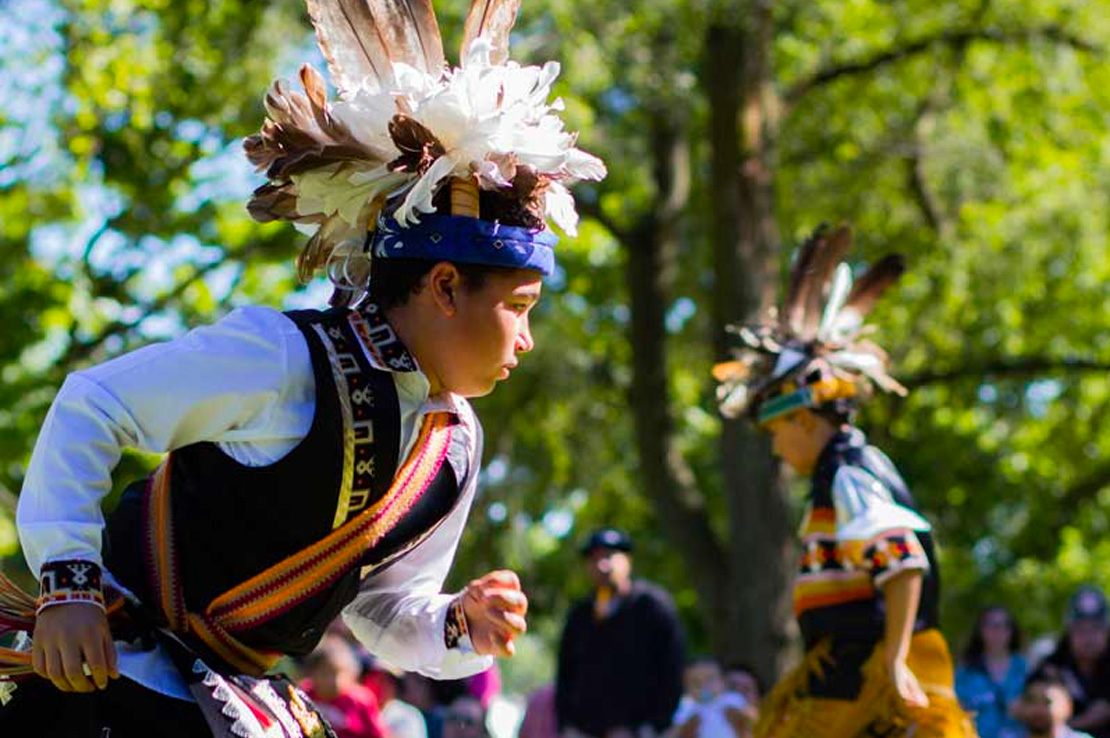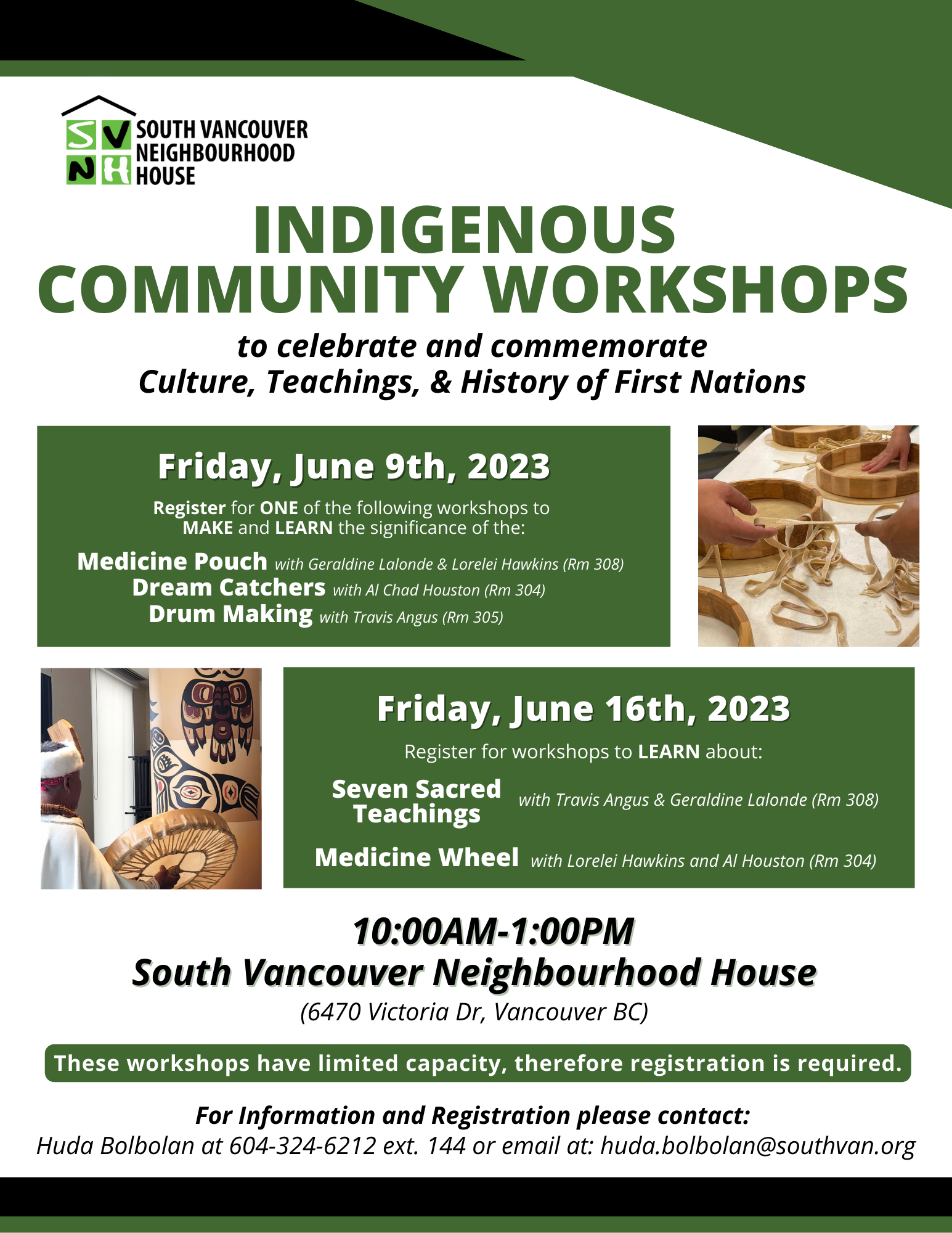
Indigenous Cultural Center Workshops for Adults: A Deep Dive into Knowledge Transmission, Revitalization, and Reconciliation
Abstract: Indigenous cultural center workshops for adults represent a critical nexus for the transmission, revitalization, and celebration of Indigenous knowledge systems, arts, languages, and practices. These programs serve as dynamic educational platforms, offering participants a unique opportunity for immersive learning, cultural understanding, and personal growth. Beyond mere instruction, they are vital instruments in the broader efforts of cultural self-determination, decolonization, and reconciliation, fostering both intra-community resilience and inter-cultural dialogue. This article explores the multifaceted dimensions of these workshops, examining their pedagogical frameworks, diverse offerings, profound benefits for both Indigenous and non-Indigenous adults, and the crucial ethical considerations inherent in their design and participation.
1. Introduction: The Evolving Role of Indigenous Cultural Centers
Indigenous cultural centers are far more than static repositories of artifacts; they are living institutions, dynamic hubs of cultural production, education, and community engagement. Historically, colonial practices sought to suppress Indigenous cultures, languages, and spiritual traditions. In response, contemporary Indigenous cultural centers have emerged as powerful sites of resistance, resilience, and resurgence. For adults, these centers offer a diverse array of workshops that stand as cornerstones of their educational mandate. These workshops are designed not only to preserve ancient knowledge but also to adapt it to contemporary contexts, ensuring its vitality and relevance for future generations. They cater to a broad audience, including Indigenous individuals seeking to reconnect with their heritage and non-Indigenous allies committed to deeper understanding and respectful engagement.

2. Pedagogical Frameworks: Holistic and Experiential Learning
The educational methodologies employed in Indigenous cultural center workshops often diverge significantly from Western academic models. They are rooted in Indigenous epistemologies, emphasizing holistic, experiential, and relational learning.
- Oral Tradition and Storytelling: Knowledge is frequently conveyed through oral narratives, songs, and personal testimonies, reflecting millennia of oral tradition. This approach fosters a deeper, more contextual understanding than purely textual learning.
- Experiential and Land-Based Learning: Many workshops incorporate hands-on activities, direct engagement with materials, and, where appropriate, learning on the land. This approach acknowledges the interconnectedness of knowledge, practice, and environment, emphasizing learning by doing and observing.
- Intergenerational Transmission: Elders and knowledge keepers play a pivotal role, serving as primary instructors and mentors. This direct transmission from respected community members ensures authenticity and continuity, reinforcing the value of ancestral wisdom.
- Relational Pedagogy: Learning is often framed within a relational context, emphasizing the connections between individuals, community, ancestors, and the natural world. This fosters a sense of responsibility and belonging, promoting collective well-being over individualistic achievement.
- Holistic Development: Workshops aim to engage participants on multiple levels—intellectual, spiritual, emotional, and physical—recognizing the interconnectedness of these dimensions in Indigenous worldviews.

These pedagogical approaches create an immersive and culturally resonant learning environment that is often deeply transformative for participants.
3. Diverse Workshop Offerings: A Spectrum of Indigenous Knowledge
The range of workshops available to adults at Indigenous cultural centers is vast, reflecting the immense diversity of Indigenous cultures globally. These offerings can be broadly categorized as follows:
3.1. Traditional Arts and Crafts
These workshops focus on the practical skills and cultural significance of Indigenous artistic expressions. Examples include:
- Beading and Quillwork: Participants learn intricate techniques, material sourcing, and the symbolism embedded in various patterns and designs. This often includes discussions on the historical significance of these art forms in regalia, adornment, and storytelling.
- Weaving and Basketry: Instruction covers fiber preparation, weaving techniques (e.g., loom weaving, finger weaving, twining), and the cultural contexts of specific designs and materials, often linked to local ecosystems and spiritual beliefs.
- Carving (Wood, Stone, Bone): Workshops introduce carving tools, safety protocols, and the artistic traditions of specific Nations, emphasizing the narrative and spiritual dimensions of carved objects, from masks to totem poles.
- Regalia Making: Participants learn to construct traditional clothing and ceremonial items, understanding the protocols, materials, and spiritual importance associated with each component.
- Hide Tanning and Leatherwork: These practical workshops teach the laborious yet rewarding process of transforming animal hides into usable leather, a crucial skill for many traditional crafts and an important connection to sustainable practices.
3.2. Language Revitalization
Language workshops are fundamental to cultural survival and identity. They often include:
- Beginner and Intermediate Language Classes: Focused on conversational skills, grammar, and vocabulary in specific Indigenous languages (e.g., Cree, Ojibwe, Mohawk, Navajo, Māori).
- Immersion Programs: Intensive sessions designed to immerse participants fully in the language, often through daily activities, songs, and storytelling.
- Language through Song and Story: Learning language in a culturally relevant and engaging format, connecting words to traditional narratives and musical expressions.
3.3. Traditional Foods and Medicines
These workshops connect participants to land, health, and ancestral knowledge:
- Foraging and Plant Identification: Guided walks to identify edible and medicinal plants, emphasizing sustainable harvesting practices and traditional ecological knowledge (TEK).
- Traditional Food Preparation: Hands-on cooking classes using traditional ingredients and methods, often accompanied by stories of food sovereignty and cultural significance.
- Herbal Remedies and Salve Making: Learning about the medicinal properties of local plants, preparation techniques, and the cultural protocols surrounding their use.
3.4. Music, Dance, and Storytelling
These expressive arts are central to Indigenous cultural life:
- Drumming and Singing Circles: Participants learn traditional songs, drumming techniques, and the protocols associated with various drum types and vocalizations.
- Traditional Dance Forms: Instruction in specific ceremonial or social dances, emphasizing their historical context, spiritual meaning, and etiquette.
- Oral Storytelling: Workshops on the art of traditional storytelling, including narrative structures, vocal delivery, and the transmission of historical accounts, cultural values, and moral lessons.
3.5. Land-Based Practices and Traditional Ecological Knowledge (TEK)
These workshops foster a deeper connection to the environment:
- Trapper Education/Survival Skills: Learning traditional hunting, trapping, and survival techniques, emphasizing respect for animals and the land.
- Environmental Stewardship: Discussions and practical activities related to Indigenous approaches to land management, conservation, and sustainable resource use.
- Traditional Navigation and Bushcraft: Skills for navigating natural landscapes, building shelters, and living harmoniously with the environment.
3.6. History, Governance, and Contemporary Issues
These workshops promote critical understanding and dialogue:
- Treaty Education: Explaining the history and contemporary relevance of treaties between Indigenous Nations and settler governments.
- Indigenous Governance Systems: Exploring pre-colonial and contemporary forms of Indigenous political organization and decision-making.
- Decolonization and Reconciliation: Discussions on the impacts of colonialism, the ongoing work of decolonization, and pathways toward meaningful reconciliation.
- Contemporary Indigenous Art and Activism: Exploring how Indigenous artists and activists use their platforms to address social, political, and environmental issues.
4. Benefits for Adult Participants
The benefits of participating in Indigenous cultural center workshops are profound and multi-layered, extending to both Indigenous and non-Indigenous individuals.
4.1. For Indigenous Adults: Cultural Revitalization and Personal Empowerment
For Indigenous adults, these workshops offer a vital pathway to reconnect with ancestral knowledge, languages, and practices that may have been disrupted by colonial policies such as residential schools or forced assimilation. This reconnection fosters:
- Identity Affirmation and Healing: Reclaiming cultural heritage is a powerful act of self-determination, contributing to individual and community healing from intergenerational trauma.
- Skill Preservation and Transmission: Participants acquire and refine traditional skills, ensuring their continuity and ability to pass them on to younger generations.
- Community Building: Workshops create spaces for shared learning, fostering stronger community bonds and a sense of collective purpose.
- Language Fluency and Cultural Literacy: Crucial for maintaining distinct cultural identities and worldviews.
4.2. For Non-Indigenous Adults: Enhanced Understanding and Allyship
For non-Indigenous adults, these workshops provide an invaluable opportunity for:
- Authentic Cultural Immersion: Moving beyond superficial engagement to experience Indigenous cultures directly, challenging stereotypes and misconceptions.
- Decolonization of Thought: Learning directly from Indigenous perspectives helps dismantle colonial biases and promotes a more nuanced understanding of history and contemporary issues.
- Informed Allyship: Gaining knowledge and building relationships can lead to more effective and respectful support for Indigenous rights, sovereignty, and self-determination.
- Personal Growth and Skill Acquisition: Many participants discover new creative outlets, practical skills, and a deeper connection to the natural world.
- Contribution to Reconciliation: Active participation in and financial support of these centers directly contributes to the economic and cultural flourishing of Indigenous communities, aligning with reconciliation efforts.
5. Ethical Considerations and Best Practices
Engaging with Indigenous cultural center workshops requires a commitment to ethical conduct and respectful engagement. Key considerations include:
- Respectful Engagement and Humility: Approaching the learning experience with an open mind, a willingness to listen, and a recognition of the instructor’s authority as a knowledge keeper. Avoiding cultural appropriation by understanding the context and respecting intellectual property.
- Reciprocity and Fair Compensation: Recognizing the immense value of Indigenous knowledge, skills, and time. Ensuring that instructors and cultural centers are fairly compensated for their expertise, which contributes to the economic self-sufficiency of Indigenous communities.
- Intellectual Property and Protocols: Understanding that certain knowledge, stories, or designs may be sacred or specific to a particular Nation and not for public reproduction or commercialization without explicit permission. Respecting cultural protocols and sensitivities.
- Authenticity and Indigenous Leadership: Prioritizing workshops led by authentic, community-recognized Indigenous knowledge keepers and artists, ensuring that teachings are rooted in genuine cultural practices.
- Intent vs. Impact: Recognizing that even with good intentions, actions can have unintended impacts. Continuous self-reflection and a willingness to learn from feedback are essential.
6. Conclusion: A Path Forward for Cultural Resilience and Global Understanding
Indigenous cultural center workshops for adults are dynamic and essential spaces for cultural resilience, knowledge transmission, and inter-cultural understanding. They serve as powerful engines for the revitalization of Indigenous languages, arts, and traditions, empowering Indigenous adults to reclaim and celebrate their heritage. Simultaneously, they offer non-Indigenous adults a profound opportunity to engage meaningfully with diverse Indigenous cultures, fostering empathy, decolonizing perspectives, and building a foundation for genuine reconciliation. By investing in and participating respectfully in these initiatives, individuals and societies contribute to a future where Indigenous knowledge systems are valued, celebrated, and integral to the global tapestry of human wisdom.


